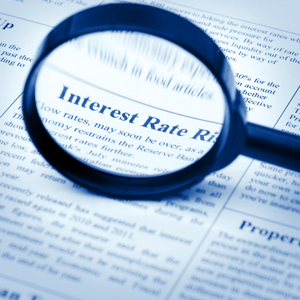
Understanding the Basics of Home Refinancing Post-divorce
Navigating home refinancing post-divorce in North Carolina requires a clear understanding of the basic principles involved. After a divorce, homeowners often find themselves needing to refinance their mortgage to remove an ex-spouse from the loan or to secure more favorable terms.
In North Carolina, this process involves assessing one’s current financial situation, credit score, and home equity to determine eligibility for refinancing options. Homeowners must carefully consider whether they can afford the new mortgage payments on their own and whether they meet the lender’s requirements.
It’s crucial to understand that refinancing may involve closing costs and potentially higher interest rates if credit scores have been impacted by the divorce. Additionally, ensuring that all legal documentation is correctly updated with both the lender and local property records is vital to prevent future complications.
Consulting with a financial advisor or mortgage specialist familiar with North Carolina’s regulations can provide valuable guidance tailored to individual circumstances during this transitional phase.
For homeowners who decide that selling their property is a better option than refinancing, working with a trusted company can make the process seamless. The Swift Cash House Buyer team can help you sell your home quickly, handle all the paperwork, and ensure a fair cash offer, allowing you to move forward confidently after a divorce.
How Divorce Affects Your Ability to Refinance a Mortgage
Divorce can significantly impact your ability to refinance a mortgage in North Carolina, presenting unique challenges for homeowners. When navigating home refinancing post-divorce, individuals must consider several factors that can affect their eligibility and loan terms.
One primary concern is the division of marital assets and debts, which can alter your financial profile and debt-to-income ratio, critical components assessed by lenders during the refinancing process. Additionally, changes in income resulting from divorce may influence your creditworthiness and ability to secure favorable refinancing rates.
It is crucial to have a clear understanding of how the divorce decree outlines property ownership and financial responsibilities, as this documentation will be essential for lenders when assessing risk. Refinancing may also require the removal of an ex-spouse’s name from the mortgage or title, necessitating legal adjustments that could complicate matters further.
Homeowners should be prepared to provide comprehensive documentation related to their divorce agreement when applying for refinancing, as lenders will scrutinize these details carefully to determine eligibility and loan conditions.
Financial Preparation for Home Refinance After Separation
Navigating the financial landscape of home refinancing after a divorce in North Carolina requires careful planning and preparation. Homeowners must first assess their individual credit scores, as lenders will scrutinize these to determine eligibility and interest rates for refinancing options.

It is crucial to gather all necessary documentation, including tax returns, income statements, and a detailed list of assets and liabilities, which will help in creating an accurate financial snapshot. Understanding the division of real estate equity post-divorce is essential; homeowners should consult with legal and financial advisors to ensure clarity on ownership rights and obligations.
Additionally, evaluating current mortgage terms against potential new loan offers can aid in identifying cost-saving opportunities or more favorable conditions tailored to a single-income household post-separation. Budgeting for potential closing costs and other fees associated with refinancing is also vital in preventing unexpected financial strain.
By taking these proactive steps, homeowners can better position themselves for successful home refinancing amid the complexities of post-divorce financial restructuring in North Carolina.
If you have questions or need personalized guidance during this process, don’t hesitate to contact us. Our team can help you navigate refinancing options, review your financial situation, and ensure a smooth transition to post-divorce homeownership.
Legal Implications of Refinancing a House in North Carolina
Understanding the legal implications of refinancing a house in North Carolina after a divorce entails more than a few superficial factors. North Carolina is an equitable distribution state, so the division of property during the divorce will affect the refinancing and ownership of the house.
The first step toward refinancing is to consider who holds the mortgage and the title to the house. Ownership and liability will be allocated in accordance with these documents. If a spouse is awarded the marital home during the divorce settlement, they may be required to refinance to ‘discharge’ the other spouse from the mortgage, which will subject the spouse to full financial liability.
Court approval or a formal agreement between the parties is usually required to effectuate compliance with the divorce agreement. Another important consideration is the homestead laws of North Carolina. These laws provide certain protections that may have an effect on the refinancing decision.
Weighing these options will need both an understanding of the law and the finances regarding refinancing a house after divorce in North Carolina.
Navigating Credit Challenges When Refinancing Post-divorce
Navigating credit challenges when refinancing a home post-divorce in North Carolina can be a complex process for homeowners, as divorce often impacts financial stability and credit scores. After a divorce, it is crucial to assess your individual credit situation, since splitting from a partner may result in changes to joint accounts and shared debts.
Understanding your current credit report is essential before approaching lenders for refinancing options. Ensuring all joint debts are settled or refinanced individually can prevent negative marks on your credit history.
It’s important to communicate with creditors to update account information and remove an ex-spouse’s name where possible. In North Carolina, lenders typically scrutinize factors such as income stability and debt-to-income ratio during the refinancing process; therefore, maintaining consistent employment and managing outstanding debts prudently enhances your eligibility.
Homeowners should also consider securing documentation that proves the divorce settlement terms regarding property division to support loan applications. Seeking advice from financial advisors familiar with North Carolina’s regulations can provide valuable insights into overcoming these credit hurdles effectively while striving for favorable refinancing terms post-divorce.
For some homeowners, selling the property may be a smarter option than refinancing, especially when credit challenges or financial strain make refinancing difficult. We buy North Carolina homes and nearby cities, offering a fast and hassle-free solution that allows you to access cash quickly and move forward after a divorce without the burden of mortgage complications.
Evaluating Interest Rates and Terms for Optimal Refinance Deals

While refinancing a home during the divorce process in North Carolina, analyzing the interest rates and other terms of the refinance is equally important to finding the most favorable refinance terms and rates. One of the steps in this process is assessing the mortgage interest rates in the market and how they differ amongst lenders, as this can change the total amount to be paid on a loan and subsequent mortgage payments.
Fixed-rate and adjustable-rate mortgages need to be compared and considered as loan terms to see what suits the mortgage holder’s cash flow and stability preferences. In addition, the terms of a mortgage, such as payment frequency and amount and loan duration, also affect payment schedules and affordability.
It will also be important to the refinancing process to analyze possible fees, closing costs, and prepayment penalties on the loan. After analyzing these factors, the lenders will have financially viable options to support their financial objectives after divorce and have optimized their mortgages in North Carolina.
Comparing Mortgage Refinance Options in North Carolina
Figuring out mortgage refinancing after a divorce in North Carolina can be a “thorny” issue, but it is helpful to understand the choices available. One popular option is the rate and term refinancing option, where individuals change the interest rate or term to potentially reduce payments, aiding the borrowers’ payment, thus alleviating the overwhelming financial strain.
For divorced individuals, there is also cash-out refinancing. It allows the refinance holder to withdraw cash to spend on divorce settlement costs or on new beginnings. In this case, the divorcees do not have to pay off the entire mortgage, as they can withdraw cash equivalent to a portion of the house’s equity. Depending on the credit score and other options, a refinance route is to be chosen.
North Carolina has real estate laws that a divorced individual must be very knowledgeable about, as they might significantly impact the refinancing options available. Getting in touch with a mortgage counselor will also help assess the lender’s criteria and focus on a tailored approach to fulfilling the client’s desired outcome post-divorce.
How Do I Refinance My House After a Divorce?
Refinancing your home after a divorce in North Carolina involves several critical steps to ensure a smooth transition. First, it is essential to assess your current financial situation and credit score, as these will significantly impact your refinancing options.
Begin by consulting with a mortgage lender who understands the nuances of post-divorce refinancing in North Carolina. They can help you explore various loan types and interest rates that suit your new financial circumstances.
It’s important to have a clear understanding of your home’s equity, as this will affect the refinancing terms and whether you need to buy out your spouse’s share if they are on the original mortgage. Gathering all necessary documentation, such as proof of income and divorce decree details, is crucial for streamlining the approval process.
Additionally, consider seeking legal advice to understand how North Carolina’s equitable distribution laws might influence property settlements and refinancing outcomes. By carefully navigating these steps and working closely with professionals familiar with divorce-related refinancing in North Carolina, you can successfully secure a mortgage that aligns with your post-divorce financial goals.
For homeowners who find that refinancing is not the best option, selling the property can provide a faster and more straightforward solution. Sell your Durham, NC, house faster and in nearby cities by working with trusted cash buyers who handle the paperwork and offer fair prices, allowing you to move on confidently after a divorce.
Can I Remove My Ex-Husband From My Mortgage Without Refinancing?

As a homeowner changing their name on a deed after divorce in North Carolina while also having a mortgage with their ex-spouse, a prevalent question is, “Can I remove an ex-husband from my mortgage without refinancing?” In general, the answer is “no.” Most lenders will require a mortgage to be refinanced in order to remove an ex-spouse from a mortgage without the spouse leaving the refinance mortgage.
If the remaining spouse on the mortgage is able to refinance with her ex-husband without losing the home, the lender is satisfied that the remaining spouse will be able to support the mortgage on her own. Regardless, there might be options that apply to some scenarios, such as divorce settlements whereby the spouse will remain fully responsible for the mortgage payments and may work with a few unofficial lenders, but that is a non-probable outcome. A real estate investment attorney whose expertise is real estate in North Carolina would be the best first point to work from.
These issues in understanding the law on these matters post-divorce and the divorce settlement itself, from a framework of understanding finances and ownership of properties, will grant a sharper understanding.
Can a Spouse Refinance Without the Other?
North Carolina has its own rules when it comes to home refinancing after divorce, especially when it comes to whether a spouse can refinance a home without the other partner being a part of the refinancing process. It’s safe to say that a spouse who wants to refinance a divorce home after the divorce in his/her name only has to ensure that the other spouse’s existing mortgage is refinanced, or paid in full, in order to remove the other spouse’s liability on the mortgage.
The other major step is to get a quitclaim deed from the non-refinancing spouse, which relinquishes their interest in the property in favor of the refinancing spouse. This step grants the refinancing spouse full ownership of the property and thus makes the refinancing much simpler.
The homeowners must work with a lender who understands and has experience with the divorce and real estate laws of the state of North Carolina to ensure a seamless process. Moreover, it is advisable that both parties communicate and coordinate their efforts to reduce the chances of possible conflicts regarding the refinance and divorce.
In order to facilitate the refinancing process and improve the chances of the spouse to whom the mortgage is transferred alone, better loan terms are achievable if the spouse engages with legal and financial counsel specializing in asset division after divorce.
Looking to refinance your home after a divorce? Whether you want to manage your mortgage, simplify ownership, or explore your options, Swift Cash House Buyer is here to help. We provide guidance, handle the details, and make the process straightforward. Have questions or ready to take the next step? Call us at (610) 590-9845 for a no-obligation consultation. Get started today!
Helpful North Carolina Blog Articles

| DIVORCING | MORTGAGE AGREEMENT | LOANS | PROPERTIES | LAWYER | PROPERTY VALUATION |
| VALUATION | QUITCLAIM | QUITCLAIM DEED | DEBT-TO-INCOME (DTI) | CHILDREN | DATA |
| TAXES | SEPARATION AGREEMENT | INSURANCE | FAIR MARKET VALUE | CONTRACTS | BINDING AGREEMENTS |
| BANK | UNDERWRITING | RISKS | PERCENTAGE | NOTARY | NOTARIZED |
| LIENS | JUDGE | FORECLOSURE | FORECLOSE | DOWN PAYMENT | CUSTODY OF CHILDREN |
| PHYSICAL CUSTODY | A REAL ESTATE |
